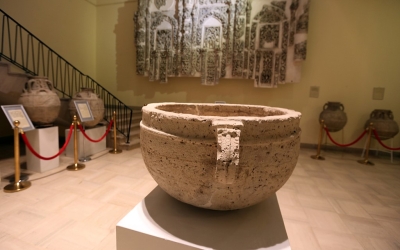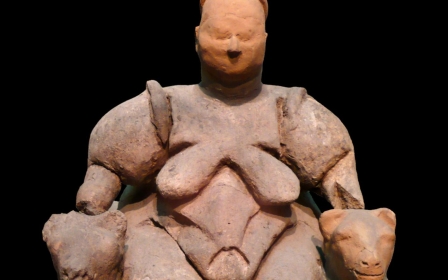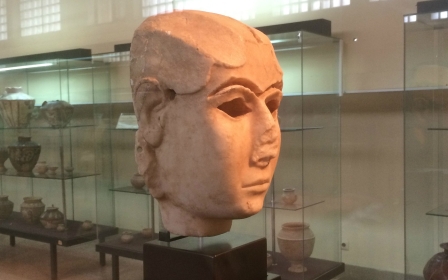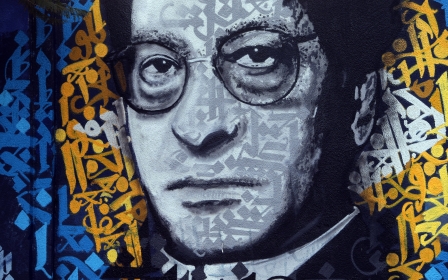US to formally return looted Gilgamesh Dream Tablet to Iraq
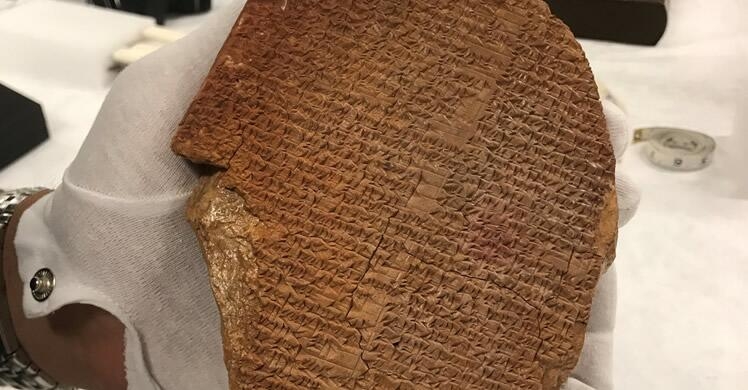
The US is returning a 3,500-year-old tablet bearing inscriptions from the Epic of Gilgamesh, one of the oldest known works of literature, to Iraq.
Inscribed in Akkadian, a now-extinct Semitic language previously spoken in Iraq and the Near East, the Gilgamesh Dream Tablet is believed to have been looted from an Iraqi museum during the First Gulf War in 1991.
It then passed through several hands before reaching a London-based dealer, who sold it to a US buyer in 2007.
In 2014 it was acquired by the retailer Hobby Lobby for $1.67m and put on display in its Museum of the Bible in Washington DC.
In 2019, the US government seized the artefact and accused the retailer of acquiring a false letter of origin for the tablet, which claimed it had been discovered in a cache of bronze fragments sold at auction in 1981.
The formal handover ceremony involving Iraqi officials takes place in Washington DC on Thursday at the Smithsonian Institute.
Unesco has called the return of the tablet “a significant victory in the fight against the illicit trafficking of cultural objects,” saying the move “symbolises the wider international mobilisation... to prevent and tackle the illicit trade in ancient artifacts”.
Audrey Azoulay, Unesco’s director-general, who will address the ceremony in Washington, said: “This exceptional restitution is a major victory over those who mutilate heritage and then traffic it to finance violence and terrorism.”
In July, the US government began facilitating the repatriation of 17,000 artefacts that were discovered to have been looted from Iraq in recent decades.
The first epic
Gilgamesh recounts the tale of the eponymous king who ruled Iraq around 5,000 years ago. A fictionalised version of the ruler, which may have been influenced by his actual personality, forms the basis of the first Gilgamesh legends, which are dated to around 4,000 years ago.
Those legends were embellished with additional poems and revised and edited over the following centuries until they formed a cohesive narrative, of which there are several versions.
Fragments of the poem were first obtained by European archaeologists in the mid-19th century and later reconstructed.
At the start of the poem, Gilgamesh, born two-thirds god and the remainder man, exercises his authority by sleeping with betrothed maidens and tiring out young men with excessive competitions.
Angered by his excesses, the gods send Enkidu, a wild animalistic man who is considered Gilgamesh's equal, to subdue the hedonist king. However, Enkidu himself takes to worldly pleasures, is civilised by a prostitute who takes him as his lover, and after a fierce struggle with Gilgamesh, the two end up becoming friends.
The basic narrative of the epic then follows the exploits of the pair as they slay enemies and find new ways of angering the gods.
This article is available in French on Middle East Eye French edition.
Middle East Eye delivers independent and unrivalled coverage and analysis of the Middle East, North Africa and beyond. To learn more about republishing this content and the associated fees, please fill out this form. More about MEE can be found here.


